Julio’s Sections turn in to Sakai site.
How to Turn in Assignment for Grant’s Sections (on this website):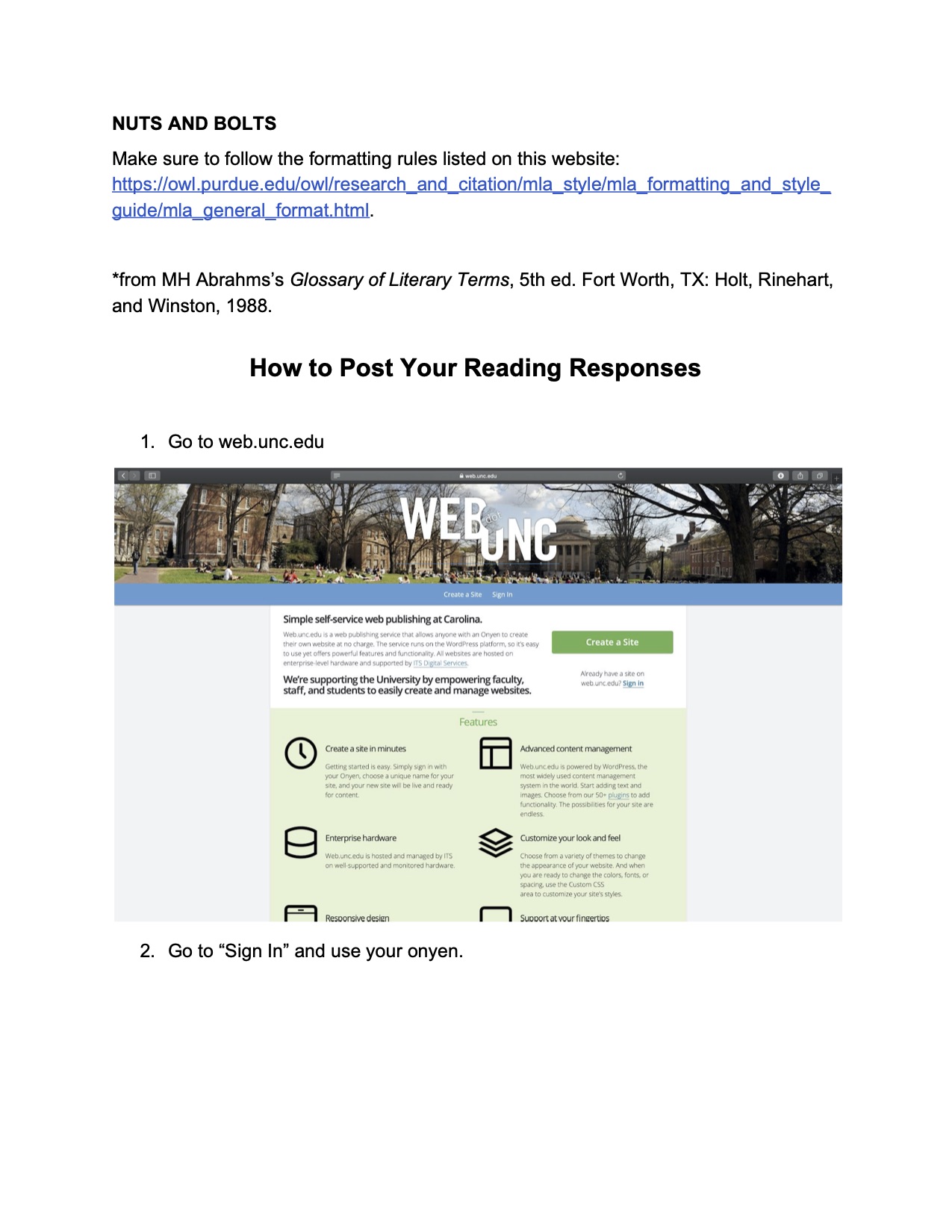
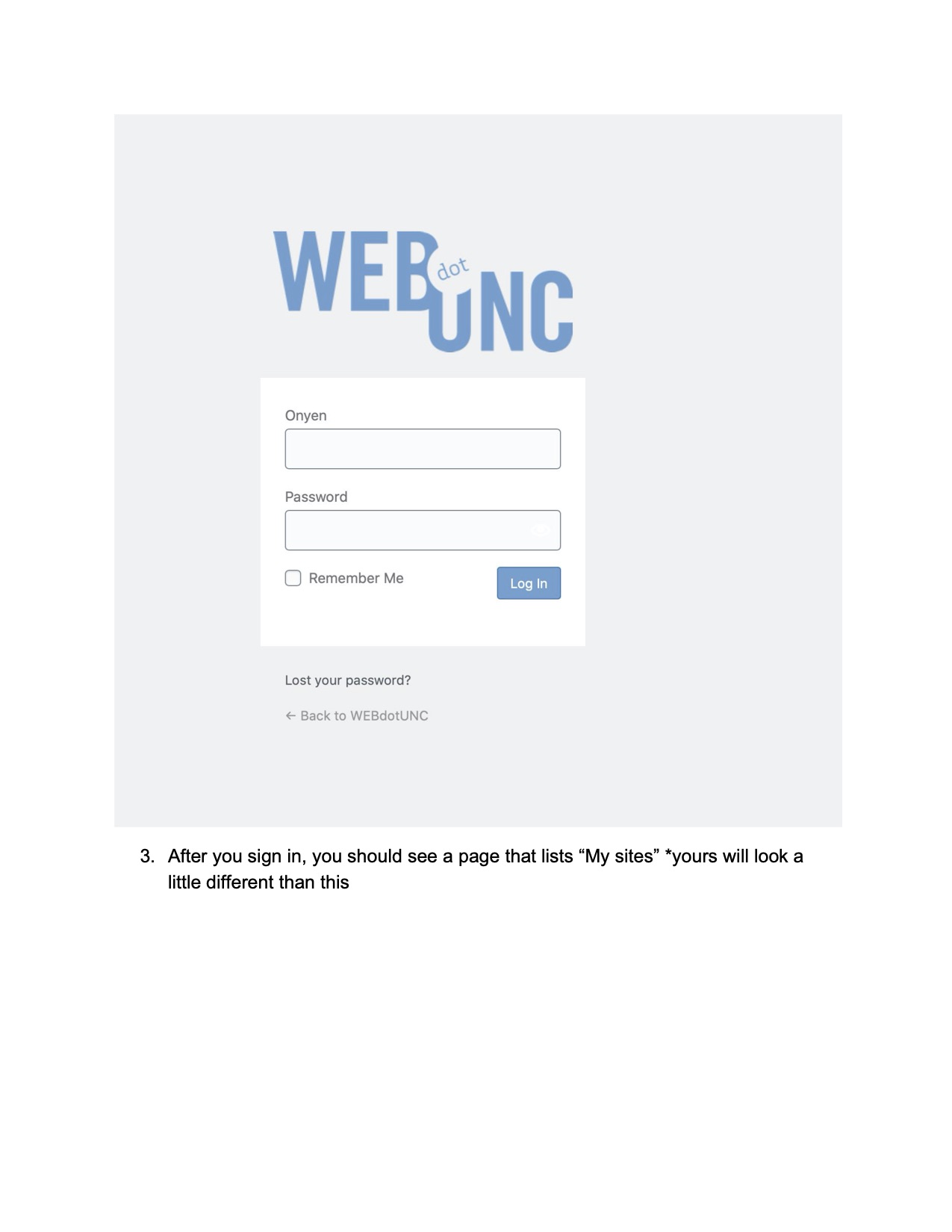
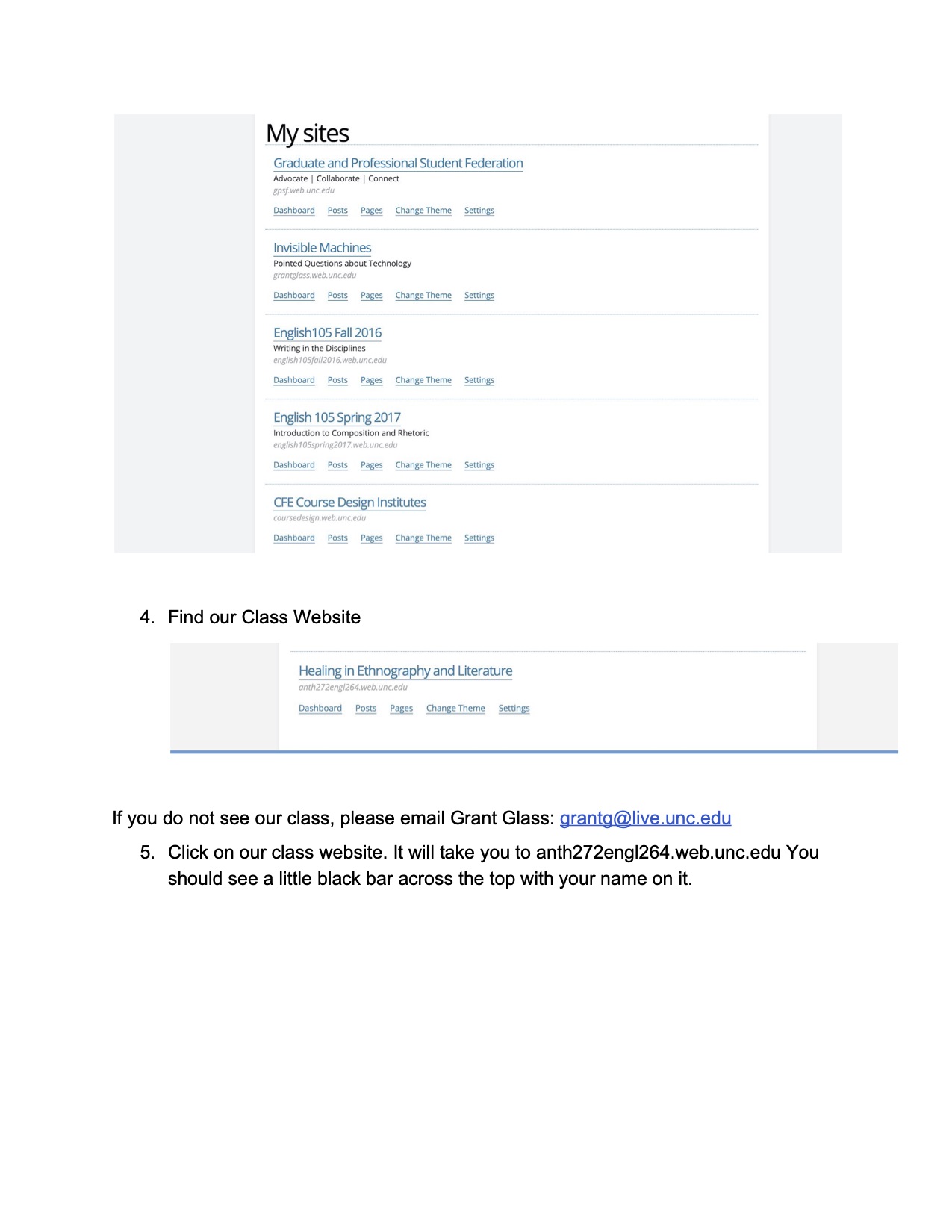
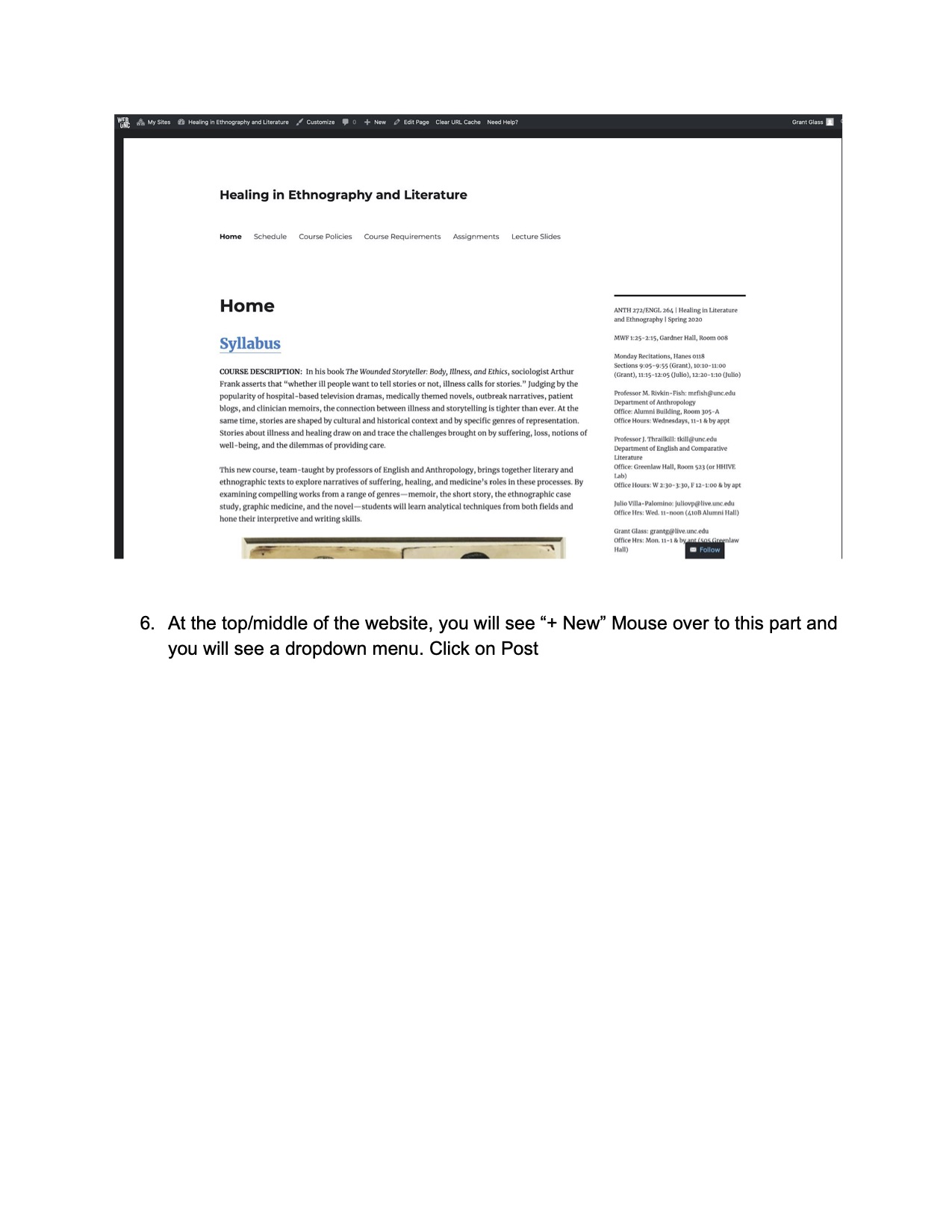
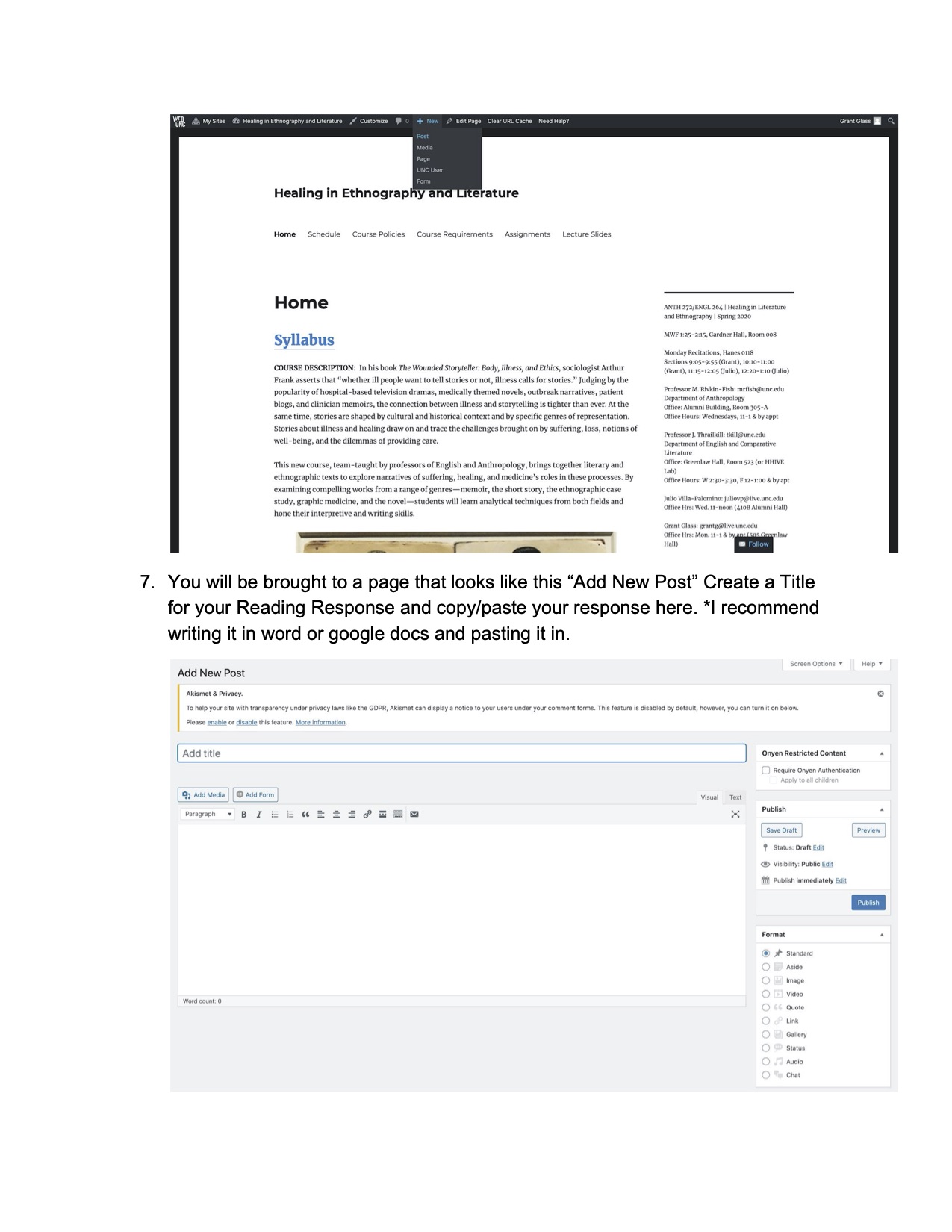
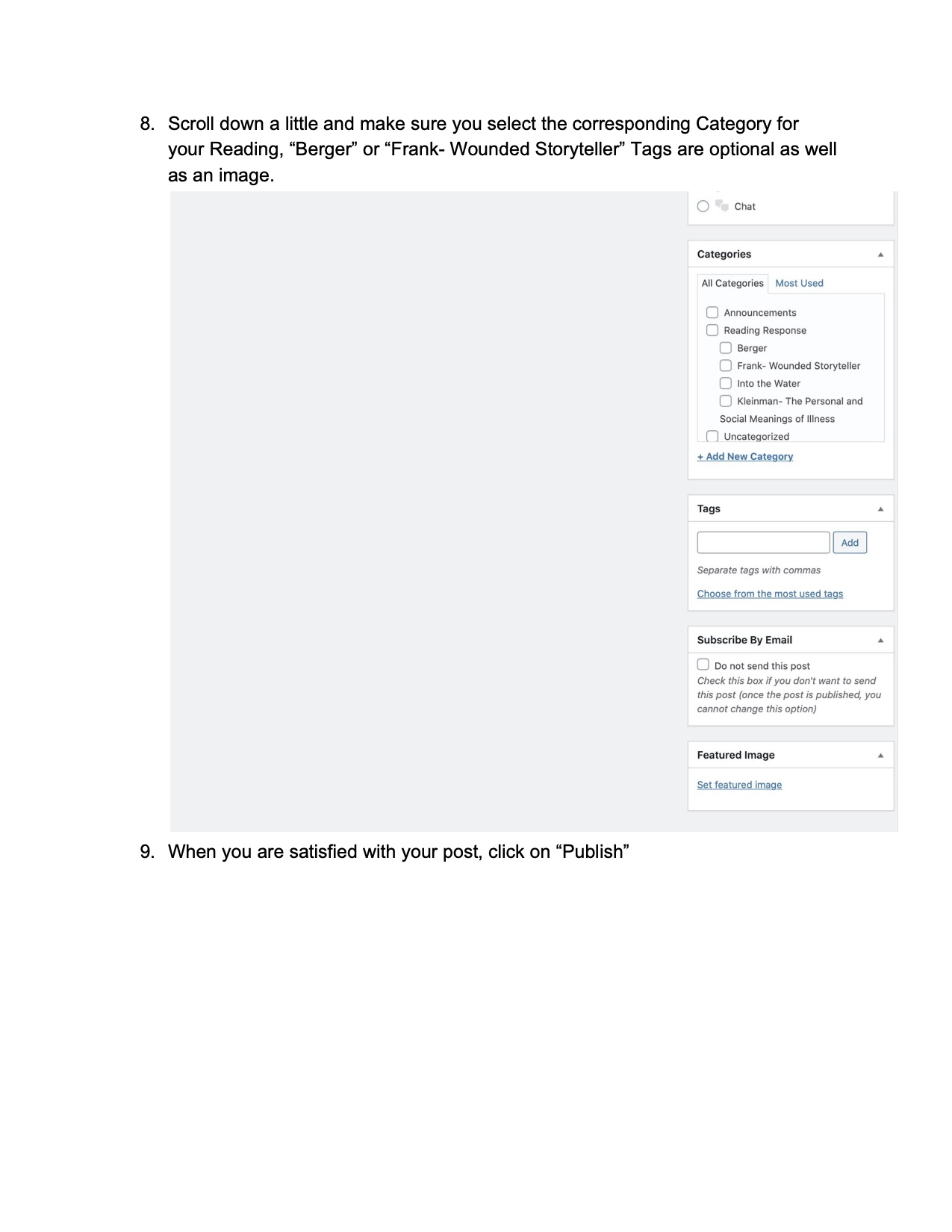
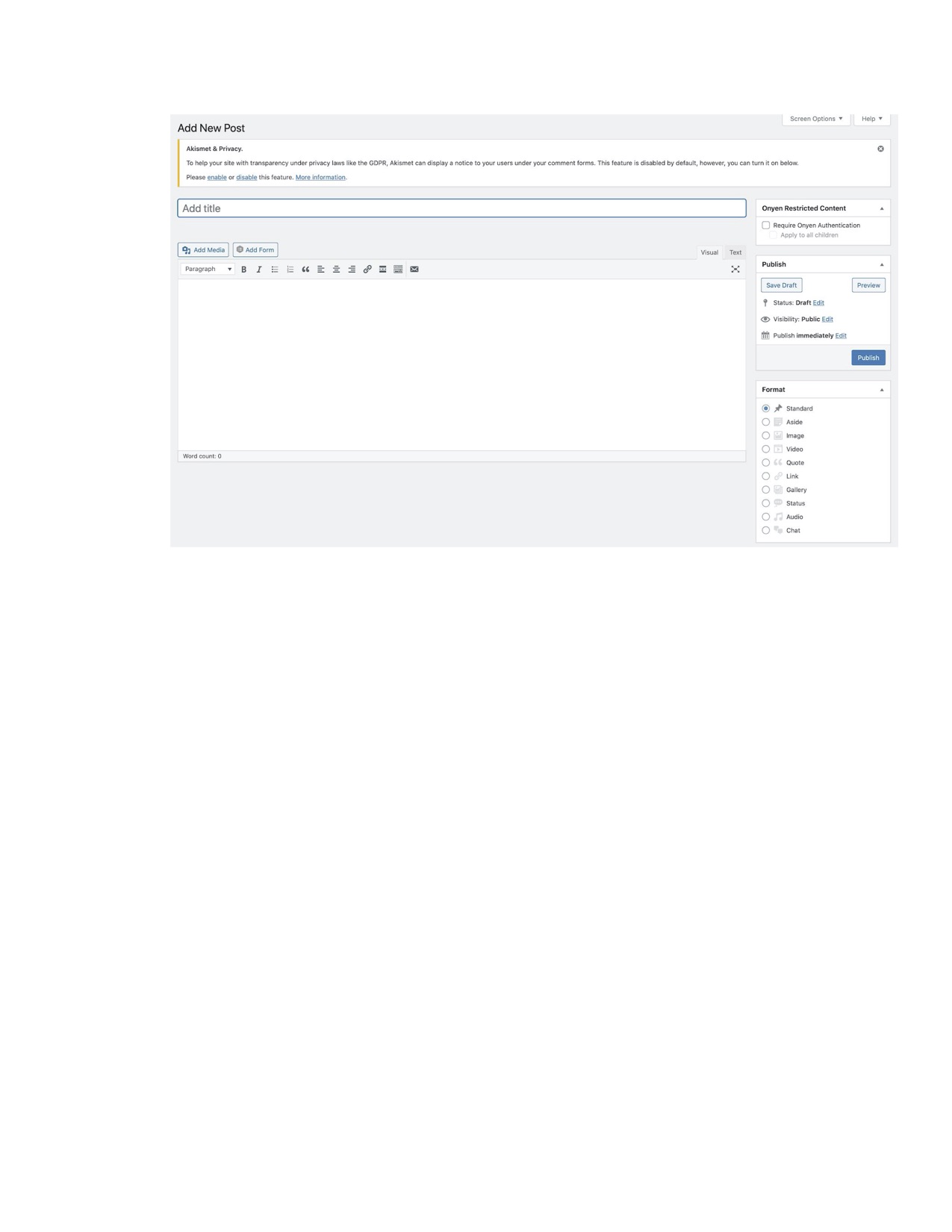
ANTH 272 / ENGL 264: How to Approach a Reading Response
*Thanks to Grant Glass for drafting the content of this handout*
From time to time, we will ask you to write a reading response, it is your responsibility to look at the class schedule for the recitation calendar to see when these are due. These are short (<300 words) commentaries in which you carefully observe one small part of a text. This is an opportunity to look carefully and to think about the text as a construction: to consider not only what a text is expressing but also how it is expressing it. You can choose any text assigned so far in the class.
This handout offers some terms and concepts to help you in the process of observation.
Please complete and post your reading response to our course website by midnight before recitation section, i.e. by 11:59 p.m. on Wednesday (03/04/20). Come to class/recitation ready to talk about your response.
~ ~ ~ ~ ~ ~ ~ ~ ~ ~ ~ ~ ~ ~ ~
OBSERVATION: Consider the Aspects of Formalist Criticism* as you read:
- Character:
- Flat: usually presents one idea or quality, doesn’t tend to change
- Round or dynamic: complex, contradictory, changing, subtle variations in personality
- Point of View:
- First- person narrators
- Self-conscious: aware that s/he is telling a story
- Unreliable: what the narrator relates might be at odds with other characters or the ‘reality’ of the text
- Innocent: doesn’t fully comprehend the implications of the events s/he is relating
- 2nd person or 3rd person
- Omniscient: access to the thoughts and actions of all characters
- limited omniscient: access to the thoughts and actions of some characters.
- Setting: the general local, historical time, and social circumstances of the narrative
- Symbol: a word, phrase, situation, action or object that has meaning beyond itself
- Tone:
- Diction: words, phrases, sentence structure, and figurative language
- Irony
- verbal: the difference between what a character says and what s/he intends
- situational: incongruity between what happens and what is expected
- dramatic: the author and audience have insights the characters do not
- Theme: general claim, sometimes implicit sometimes overt, with which a text persuades its readers
- Tropes: figurative use of language such as simile, metaphor, personification, etc.
CLOSE READING PROCESS
In writing about literature or any specific text, you will strengthen your discussion or argument if you offer specific passages from the text as evidence. Rather than simply dropping in quotations and expecting their significance and relevance to your argument to be self-evident, you need to provide sufficient analysis of the passage. Remember that your goal in analytic writing is to demonstrate some new understanding of the text.
- What is the genre of a text? Ethnography, nonfiction, memoir, scientific article, poem, film—?
- Find a passage that seems rich with significance, perhaps puzzling, perhaps disturbing, in some way a “hot spot” that stands out in the text. Read the passage again.
- Circle key words: words that you don’t understand (look them up!), words that are repeated, words that appeal to your senses, words that stand out as striking, strange, curious.
- Double underline punctuation or sentence variation that strikes you. (None may strike you, but then perhaps find a different, richer passage?)
- Ask questions of the passage: what might the writer mean calling your attention to “x”? Try to answer your question explaining why words, phrases, or punctuation drew your attention.
- Pay attention to feeling. Is there a mood that arises from the writing? Do you have particular responses to it – find it amusing, disturbing, distasteful, embarrassing, confusing, upsetting–?
- Do you see a theme, or themes, emerging? Make a list.
- Note connections between this passage and the rest of the text. Link it to a similar passage (one with the same theme) and a dissimilar one (one on another theme). What do you notice from this juxtaposition?
- Make connections between this text and other texts, issues, concepts, or terms that we’ve covered in this class.
- Focus on WHY. Why is this important to note and share with your reader?
NUTS AND BOLTS
Make sure to follow the formatting rules listed on this website: https://owl.purdue.edu/owl/research_and_citation/mla_style/mla_formatting_and_style_guide/mla_general_format.html.
*from MH Abrahms’s Glossary of Literary Terms, 5th ed. Fort Worth, TX: Holt, Rinehart, and Winston, 1988.
How to Post Your Reading Responses to the Class Website
- Go to web.unc.edu
- Go to “Sign In” and use your onyen.
- After you sign in, you should see a page that lists “My sites”
- Find our Class Website
- If you do not see our class, please email Grant Glass: grantg@live.unc.edu
- Click on our class website. It will take you to anth272engl264.web.unc.edu You should see a little black bar across the top with your name on it.
- At the top/middle of the website, you will see “+ New” Mouse over to this part and you will see a dropdown menu. Click on Post
- You will be brought to a page that looks like this “Add New Post” Create a Title for your Reading Response and copy/paste your response here. *I recommend writing it in word or google docs and pasting it in.
- Scroll down a little and make sure you select the corresponding Category for your Reading, “Berger” or “Frank- Wounded Storyteller” Tags are optional as well as an image.
- When you are satisfied with your post, click on “Publish”






